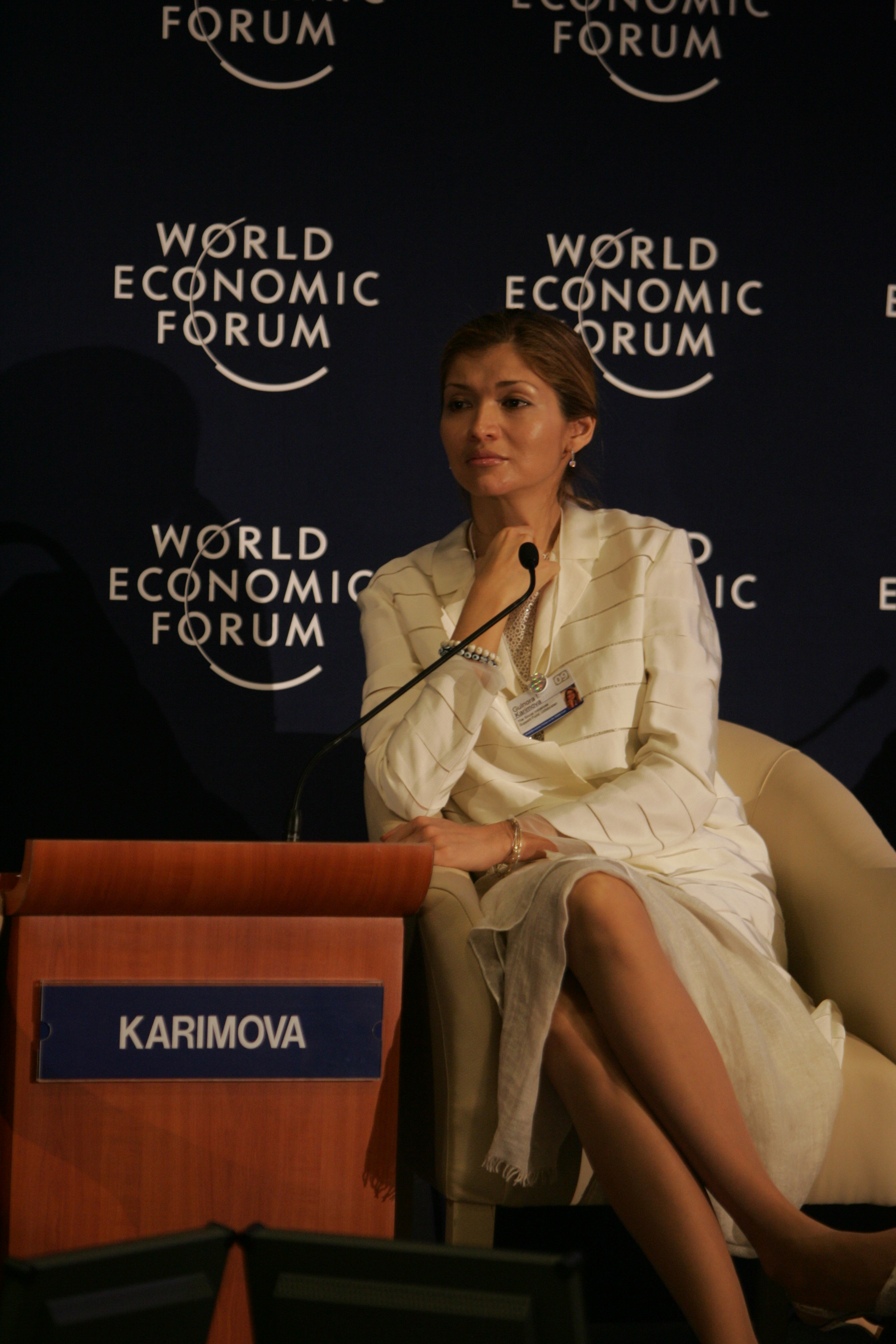Corruption Accusations Surface After Karimov’s Death
Weeks after the death of Uzbek President Islam Karimov, his daughter Gulnara Karimova remains under international scrutiny for her involvement in money-laundering schemes, bribery, and other corrupt activities. Transparency International ranks Uzbekistan in the sixth percentile for control of corruption, and Uzbek elites, like their counterparts in several other post-Soviet states, benefit from the illicit centralization of political and economic power in their hands. According to David G. Lewis at the Open Society Foundation, “The most important political groupings [in Uzbekistan] are not political parties, but patron-client systems or networks, which compete for control over business and resources. It is the interaction among these power networks—presided over by an autocratic president—that decides… who ultimately wields power.”
Gulnara Karimova attending the World Economic Forum in 2009.
Karimova played a key role in such a network while maintaining a presence as a businesswoman, pop star, and ambassador to the United Nations. She was also widely considered to be a likely successor to her father before news of her business practices led to international and internal disfavor and, eventually, house arrest.
The most notable business scheme that Karimova presided over involved several telecommunications firms and was first reported in Sweden in 2012. The country’s growing population makes it a potentially attractive market for mobile phones and related services, but state surveillance and internet restrictions complicate customers’ choices.
Karimova was found to have possibly taken payments from these firms before allowing them to do business in Uzbekistan. TeliaSonera, one of the companies cited, paid hundreds of millions of dollars to a shell company owned by Gayane Avakyan, an Uzbek citizen known to be close to Karimova who was under investigation for money laundering. Other associates of Karimova were implicated in similar scandals.
Because TeliaSonera and two other implicated firms, VimpelCom and MTS, are traded on the U.S. stock market, a U.S. corruption probe was launched. The U.S. Department of Justice seized almost $600 million in assets traceable to Karimova and others close to her, and the United States is now in negotiations with the Uzbek government as to how to return the money.
It is possible that if the assets are returned to Uzbekistan, they will merely be recycled into the corrupt political system. Similar problems have been documented in the repatriation of assets in Kazakhstan, which were frozen in 1999 and not fully returned until 2015. According to the Financial Times, only about one-eighth of the dollar value of assets seized by the United States from corrupt foreign officials and companies has been returned to the citizens from whom it was initially stolen. Returning money to citizens and civil society organizations without engaging with governments is difficult and may prove impossible in Uzbekistan.

